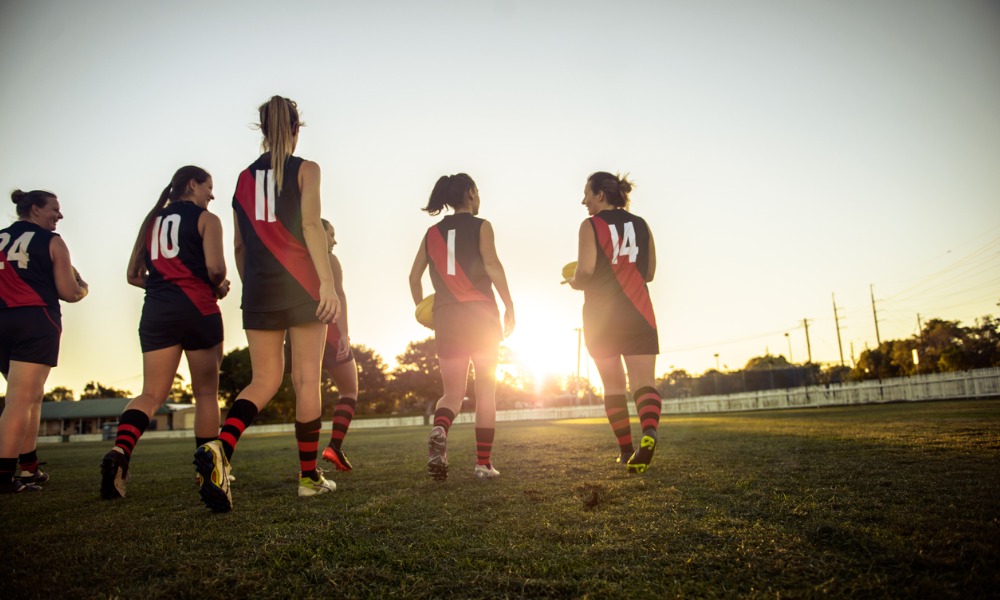
'Being resilient means being able to bounce back – and win'

When Canada lost the Women’s Rugby World Cup in 2014, Maria Samson found it difficult to bounce back. The Canadian sports icon struggled to watch rugby again for years afterwards – but inevitably this vulnerability led to greater resilience.
“It probably took me six or seven years to watch our Canadian women play again because all the emotions kept coming back. I was certainly supportive of them but it was hard for me to sit down and watch a game.”
However, Samson is a big believer in the merits of vulnerability in building leadership resilience - something she says translates perfectly into the corporate world.
“That example of me not being able to watch the women’s rugby is a prime example of this,” she tells HRD. “While I think you have to be able to turn the emotional piece off sometimes, being resilient means being able to bounce back – and win.”
Having that humbleness and simultaneously being a team player – that all comes from playing sports for Samson. Having originally preferred basketball in her school days, Samson found college and the promise of travel led her to hone her rugby abilities. Graduating with a Bachelor of Engineering from McGill University, Samson soon made the national team and enjoyed a five-year career. Throughout this time, Samson was named one of Avenue Magazine's Top 40 Under 40 – something she attributes to her community leadership and advocacy work.
As a passionate sports advocate, Samson continues to work to ensure equal opportunities for women’s programming and is an active board member of Capgemini’s Women in Rugby Leadership Program, working to transform the future of women’s sports – something she’s seen only further enhance her business leadership skills.
“There’s an enormous amount of lessons in the sporting world, specifically team sports, that as a leader you can draw upon,” Samson tells HRD. “A big aspect of this is being a good team player, whether you're the captain, the manager or the supervisor – as well as dealing with adversity and learning that it’s actually okay to fail. After all, there’s not a lot of teams in the world that win every single game.”
This resilience is something that’s really come to the fore post-pandemic.
According to data from Capgemini, 85% of decision-makers agree that an improved employee experience and higher employee engagement translate to a better customer experience. What’s more, a report from Deloitte found that 71% of senior executives think employee engagement is critical to their company’s success, and resilient leaders tend to keep teams engaged even during crises.
“Sports teaches you how the work under pressure,” adds Samson. “Something that’s essential in good leadership. It’s about pulling together as a team to achieve the end goal – even if you don’t necessarily get along with the people you’re working with.”
Samson also reiterates the role of vulnerability in leadership – learning that it’s actually a superpower, not a flaw.
“We do something with my team here at work where every time we have a team meeting we spend 20 seconds to share whatever you want,” she tells HRD. “This could be something at work bugging you or something fun happening this weekend at home. The joke is when you have nothing to share, you say you're going to get your nails done.”
Opening up like this, sharing things that are either bothering you or things that spark joy, helps build those inter-colleague relationships. According to research from Brene Brown, teams where leaders show vulnerability have a 47% higher likelihood of reporting higher levels of collaboration and trust – what’s more, teams that emphasize vulnerability and bonding are 35% more likely to be productive due to the openness and enhanced communication within the team.
“I think connecting with people more on a personal level is really important in the workplace,” adds Samson.
“I know there are some views around keeping work and personal life separate – but for me, I'm the same person at home and at work. I want to open that up so that vulnerability especially around mental health, is the norm. Vulnerability to me is a strength. It's not a weakness. Being open and honest with yourself and your team, I think, is incredibly important.”